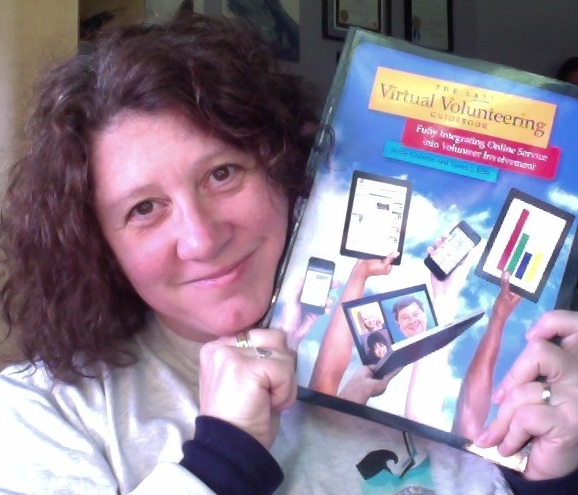
Points of Light commissioned a research study to understand the state of American civic engagement – in all its facets – as of May 2020, and to explore the path forward for catalyzing deeper and broader civic participation. Researchers surveyed 1,441 adults in May for the report, which says it has a margin of error of plus or minus 2.8 percentage points.
The study found that the pandemic and other catastrophes prompted a surge in interest in volunteering in May: While only 36 percent of American adults say they volunteered within the last year, 60 percent said they are interested in doing so in May, and 73 percent said volunteering is more important than ever. According to the survey, Gen Z already demonstrates higher rates of civic engagement than older generations.
The study also found that 75 percent of Americans said in May that donating to nonprofits is more important than ever because of the Covid-19 crisis, while 54 percent reported giving to charity a year ago.
Note that by civic engagement, the survey did not just mean volunteering. Activities measured included:
- Donated money to a nonprofit
- Signed a petition
- Purchase decisions based on company’s social responsibility
- Participated in volunteer activities
- Posted or started group/campaign for issue on social media
- Contacted elected official about issue
- Considered applying/taking job because of company’s social responsibility
- Attended demonstration or rally for issue
- Public service thru military, elected office, nonprofit board
- Voted in every/almost every election in past few years
Volunteer Preferences and the percentages of people that selected such:
- Focus on global issues impacting our world: 18%
- Not interact directly with people benefiting: 24%
- Volunteer directly or with friends/ neighbors, not through organization: 28%
- Participate at home/online: 30%
- Activities where I help someone one-on-one: 27%
- One-time activities: 29%
A much bigger group selected these “opposite” options of each of the bulleted items above:
- Focus on issues directly impacting my community +37 —> 55%
- Interact directly with people who are benefiting +22 —> 46%
- Volunteer through an organization +15 —> 43%
- Participate in person +12 —> 42%
- Activities where I help groups of people +14 —> 41%
- Activities that I can do on a regular basis +10 —> 39%
I hope that the way this was presented wasn’t done to imply that volunteering from home, online (virtual volunteering) doesn’t allow for volunteering activities that many people preferred: interacting with someone one-on-one, interacting directly with people benefitting, and focusing on issues directly impacting a volunteer’s community. All of these things are possible in virtual volunteering and have been the preferred activities of online volunteers, at least according to all of the research I’ve done since the late 1990s – indeed, when I’ve said that a greater portion of online volunteers want a more substantial experience than a few minutes of microvolunteering, a lot of tech bros – people with corporate backgrounds and tech backgrounds, not volunteerism backgrounds – have really pushed back. Yet, once again, the latest research shows it’s true.
According to the survey, the top barriers to volunteering (among those interested in volunteering who have not done so) are the following – the same things those of us in the volunteer management field have heard year after year:
- Unsure how to get involved or where to find opportunities 44%
- Cannot find opportunities near me 44%
- Not sure what I can do that would be helpful 43%
- Busy, don’t have time to volunteer 42%
- Haven’t found a group of volunteers with whom I fit 41%
- Haven’t found opportunities matching my skills, abilities 41% ‘
- Rather do other things when I have free time 34%
- Uncomfortable volunteering with people I don’t know 33%
- Don’t believe my efforts will make a difference 26%
From the volunteer perspective, a worthwhile experience is:
- discoverable. Can be easily found online.
- local. Addresses an issue important to my community.
- credible. Delivered by an organization with local/issue expertise.
- social. Allows me to invite my friends and family.
- authentic. Explains why my actions will matter, upfront.
- personal. Allows me to engage with beneficiaries.
- impactful. Shows me the outcomes of my actions.
- repeatable. Provides an avenue for me to reengage.
This part was my favorite part of the study, in fact – what makes a worthwhile experience. How many managers of volunteer programs are going to use this to improve their own volunteer engagement schemes? And, again, this supports everything I’ve said about micro volunteering – it’s nice, it’s worth exploring, but it’s NOT what most volunteers are looking for.
Here’s the full research study. It would be fascinating to compare this to now – in May, the country was experiencing a pandemic “surge”, where people were feeling optimistic and community-minded. Now, it’s almost October, and we’re most definitely in pandemic “fatigue” where people are feeling anxious, even negative, and rebellious.
Also see:
- Microvolunteering & Crowd-Sourcing: Not-So-New (but important) Trends in Virtual Volunteering/Online Volunteering. (my main web page on this topic)
- Microvolunteering: beyond the hype. (blog commentary)
- Crowdsourcing & Microvolunteering: still not new, still takes a lot of work. (blog commentary)
- Yes, research microvolunteering, however… (blog commentary)
- Microvolunteering @ Techsoup. (blog commentary)
- Another person’s take on microvolunteering. (blog commentary)
- Microvolunteering is virtual volunteering. (blog commentary)





